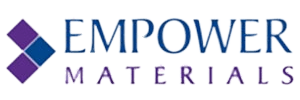Empower Materials Inc. produces the world's cleanest thermally decomposable organic/sacrificial binders called QPAC®. QPAC® cleanly decomposes into water and CO2 in several types of atmospheres, leaving almost no residue. This property of QPAC® contributes to its extensive usage in various challenging applications.
.jpg)
Image Credits: shutterstock.com/HelloRF Zcool
QPAC® poly(alkylene carbonate) copolymers are an exclusive range of innovative thermoplastics, which represent a real advancement in polymer technology. While conventional plastics have been mainly petroleum based, these materials are derived from carbon dioxide and are produced through the copolymerization of CO2 with one or more epoxides. The resultant polymers have long-term mechanical stability, readily processible, clear, and amorphous. They are also eco-friendly as they consume 50% fewer petrochemicals, as compared to other polymers which are 100% petrochemical based. Moreover, they may display biodegradable properties consistent with an environmentally friendly binder.
The two most widely used products within Empower’s binder range are QPAC® 25, QPAC® 40, and polypropylene carbonate. However, an extensive range of QPAC® polymers can be obtained by changing the epoxide monomer or using blends of epoxides to produce a specific reaction. The technical group at Empower Materials has the required experience to efficiently work with the customers to develop the most suitable product for their application.
Production Capabilities of Empower Materials
As the only commercial manufacturer of polyalkylene carbonates in the world, Empower Materials is capable of manufacturing large quantities (1000's of kgs) of, QPAC® 100, a terpolymer of polypropylene carbonate and polycyclohexene carbonate; QPAC® 40, polypropylene carbonate; and QPAC® 25, polyethylene carbonate.
Furthermore, a wide range of other QPAC® polymers are possible by substituting oxiranes (epoxides) using the same production equipment configuration. Besides QPAC® 25, QPAC® 40, and QPAC® 100 (polypropylene carbonate, polyethylene carbonate and polypropylene carbonate/polycyclohexene, respectively), QPAC® 130 (poly-cyclohexene carbonate) and QPAC® 60 (poly-butylene-carbonate) have also been effectively synthesized on pilot scale equipment.
Empower Materials also has the technology to alter the molecular weight of the polymer across an extensive range.
Clean Water Based Polypropylene Carbonate Emulsion System
Non solvent systems are gaining increasing attention with the push toward more eco-friendly technologies. Generally, polyalklene carbonates, such as polypropylene carbonate, PPC, were only supplied in solvent based systems since they are insoluble in water. Several years ago, Empower Materials developed a water-based emulsion system to address customer requirements for a water-based polypropylene carbonate emulsion.
Recently, this product has been enhanced to provide the customer remarkably stable and clean emulsion. With a proprietary process, Empower Materials can produce a QPAC® 40 polypropylene carbonate emulsion that has excellent mechanical properties for a water-based emulsion. The emulsion is stable and has a long shelf life; the additives have been reduced and are of the cleanest type to match the clean properties of QPAC® 40. In addition, the suspended particles are extremely fine. This aqueous dispersion is now commercially available.

This information has been sourced, reviewed and adapted from materials provided by Empower Materials.
For more information on this source, please visit Empower Materials.